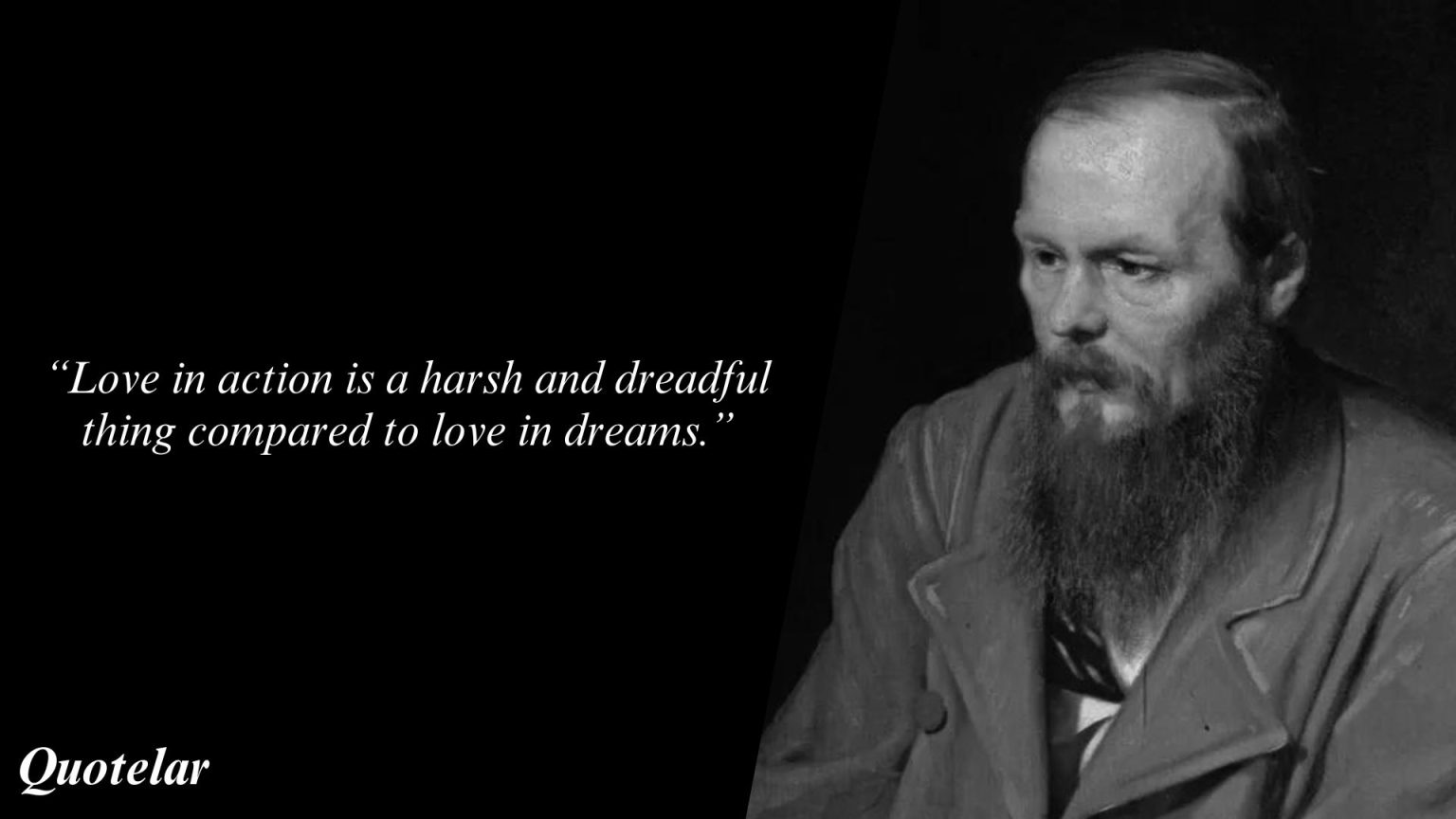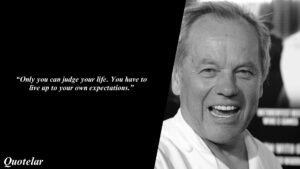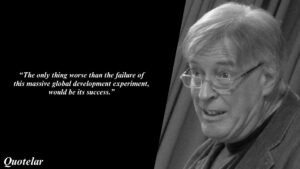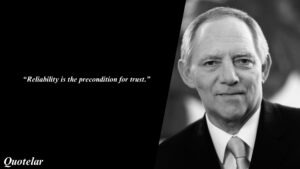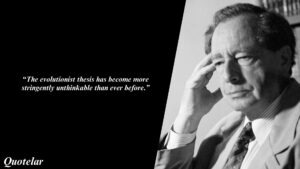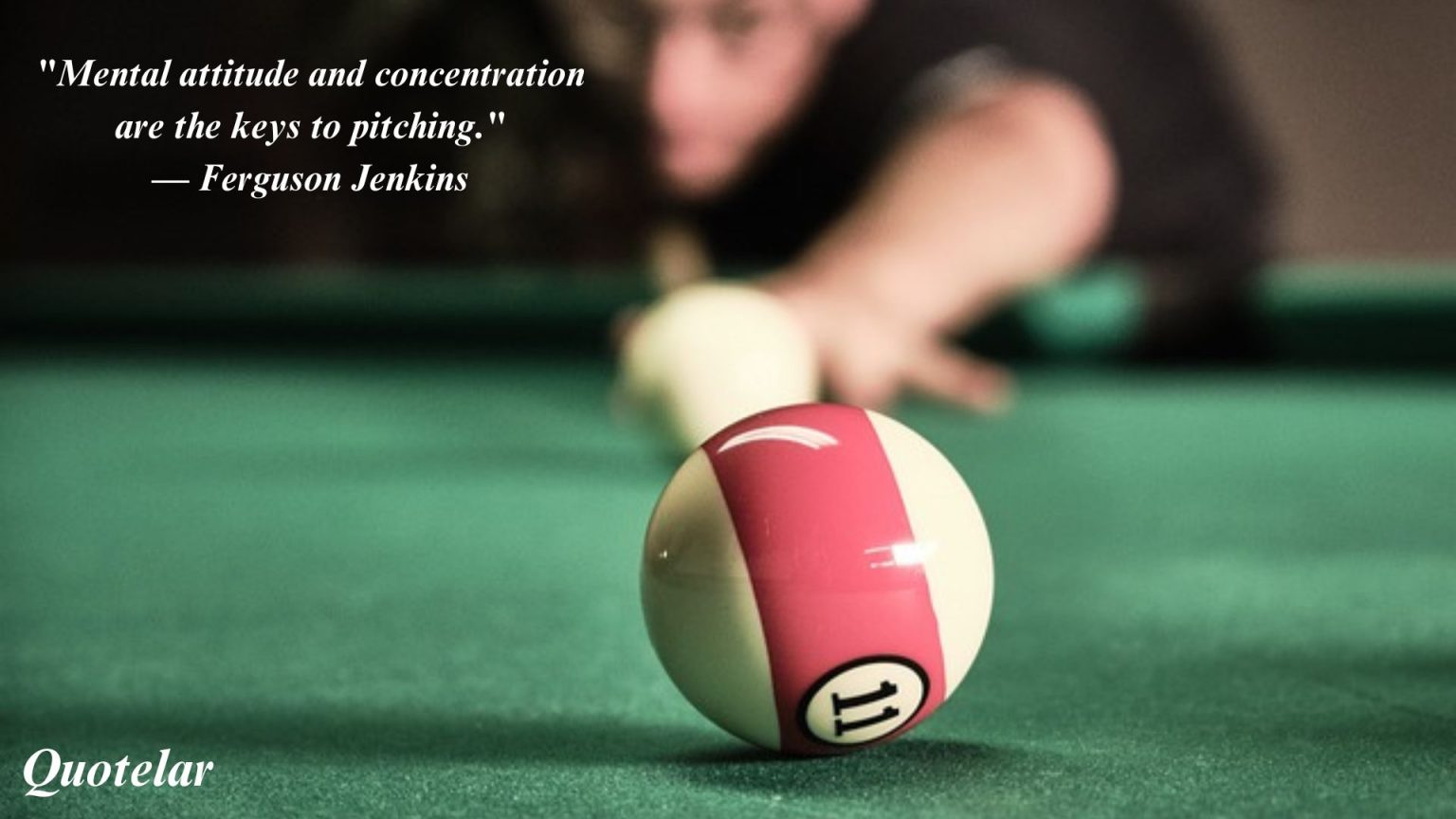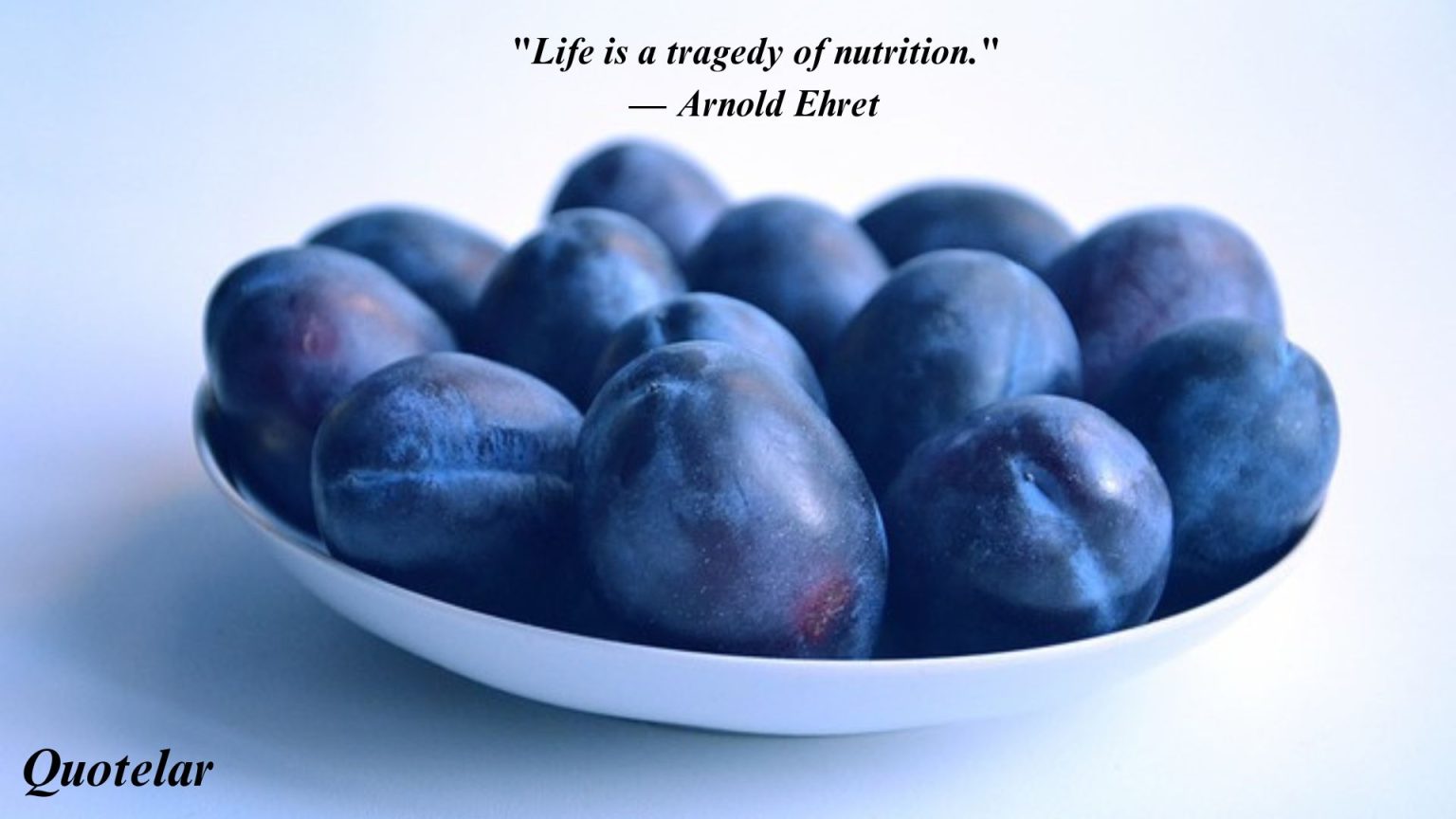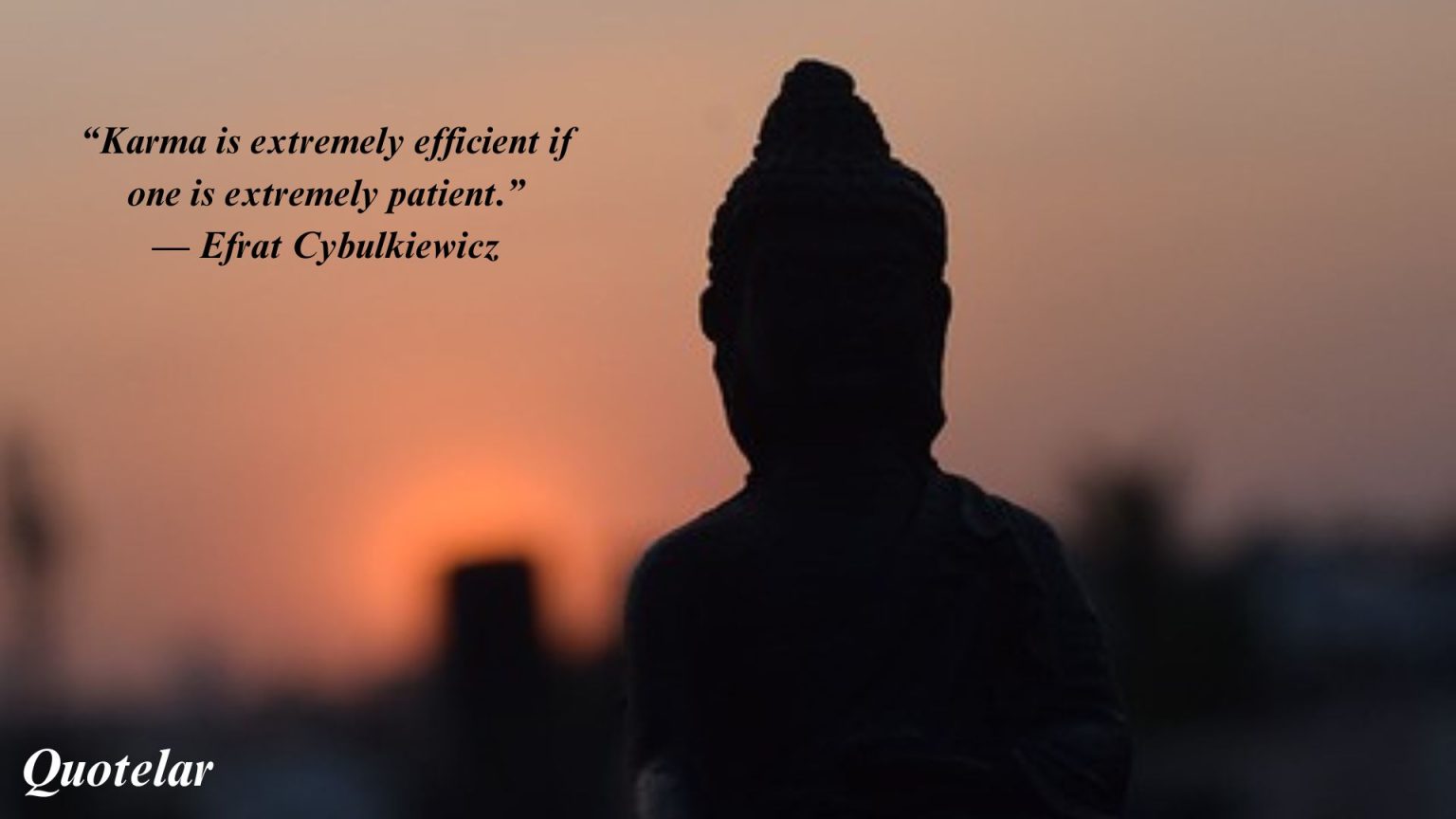Fyodor Mikhailovich Dostoevsky (11 November 1821 – 9 February 1881), sometimes transliterated as Dostoyevsky, was a Russian novelist, short story writer, essayist and journalist. Numerous literary critics regard him as one of the greatest novelists in all of world literature, as many of his works are considered highly influential masterpieces.
Dostoevsky, a master of exploring humanity’s depths, penned acclaimed novels like “Crime and Punishment” and “Brothers Karamazov.” Born in Moscow, he found an early love for literature but faced hardships, including exile and gambling addiction. Despite financial struggles, he became a celebrated author known for his insightful portrayals of social, political, and philosophical themes within 19th-century Russia. His lasting impact on literature can be seen in the works of Russian writers like Solzhenitsyn, philosophers like Nietzsche and Sartre, and even entire movements like Existentialism. Translated into over 170 languages and adapted for film, Dostoevsky’s legacy continues to resonate worldwide.
Fyodor Dostoevsky Quotes
1. “Above all, don’t lie to yourself.”
— Fyodor Dostoyevsky
2. “Pain and suffering are always inevitable for a large intelligence and a deep heart. The really great men must, I think, have great sadness on earth.”
— Fyodor Dostoyevsky
3. “Beauty will save the world.”
— Fyodor Dostoyevsky
4. “The mystery of human existence lies not in just staying alive, but in finding something to live for.”
— Fyodor Dostoyevsky
5. “The best way to keep a prisoner from escaping is to make sure he never knows he’s in prison.”
— Fyodor Dostoyevsky
6. “It is better to be unhappy and know the worst than to be happy in a fool’s paradise.”
— Fyodor Dostoyevsky
7. “Above all, don’t lie to yourself. The man who lies to himself and listens to his own lie comes to a point that he cannot distinguish the truth within him, or around him, and so loses all respect for himself and for others. And having no respect he ceases to love.”
— Fyodor Dostoyevsky
8. “But how could you live and have no story to tell?”
— Fyodor Dostoyevsky
9. “The darker the night, the brighter the stars, The deeper the grief, the closer is God!”
— Fyodor Dostoyevsky
10. “If you want to overcome the whole world, overcome yourself.”
— Fyodor Dostoyevsky
11. “This is my last message to you: in sorrow, seek happiness.”
— Fyodor Dostoyevsky
12. “If you want to be respected by others, the great thing is to respect yourself. Only by that, only by self-respect will you compel others to respect you.”
— Fyodor Dostoyevsky
13. “The cleverest of all, in my opinion, is the man who calls himself a fool at least once a month.”
— Fyodor Dostoyevsky
14. “To think too much is a disease.”
— Fyodor Dostoyevsky
15. “Man is sometimes extraordinarily, passionately, in love with suffering…”
— Fyodor Dostoyevsky
16. “Love the animals, love the plants, love everything. If you love everything, you will perceive the divine mystery in things. Once you perceive it, you will begin to comprehend it better every day. And you will come at last to love the whole world with an all-embracing love.”
— Fyodor Dostoyevsky
17. “To go wrong in one’s own way is better than to go right in someone else’s.”
— Fyodor Dostoyevsky
18. “To live without Hope is to Cease to live.”
— Fyodor Dostoyevsky
19. “I say let the world go to hell, but I should always have my tea.”
— Fyodor Dostoyevsky
20. “There is only one thing that I dread: not to be worthy of my sufferings.”
— Fyodor Dostoyevsky
21. “If there is no God, then I am God.”
— Fyodor Dostoyevsky
22. “Nothing is easier than to denounce the evildoer; nothing is more difficult than to understand him.”
— Fyodor Dostoyevsky
23. “Power is given only to those who dare to lower themselves and pick it up. Only one thing matters, one thing; to be able to dare!”
— Fyodor Dostoyevsky
24. “People speak sometimes about the “bestial” cruelty of man, but that is terribly unjust and offensive to beasts, no animal could ever be so cruel as a man, so artfully, so artistically cruel.”
— Fyodor Dostoyevsky
25. “Man only likes to count his troubles; he doesn’t calculate his happiness.”
— Fyodor Dostoyevsky
26. “The greatest happiness is to know the source of unhappiness.”
— Fyodor Dostoyevsky
27. “Taking a new step, uttering a new word, is what people fear most.”
— Fyodor Dostoyevsky
28. “For broad understanding and deep feeling, you need pain and suffering.”
— Fyodor Dostoyevsky
29. “What is hell? I maintain that it is the suffering of being unable to love.”
— Fyodor Dostoyevsky
30. “The world will be saved by beauty.”
— Fyodor Dostoyevsky
31. “Reason is the slave of passion.”
— Fyodor Dostoyevsky
32. “If everything on earth were rational, nothing would happen.”
— Fyodor Dostoyevsky
33. “Man has it all in his hands, and it all slips through his fingers from sheer cowardice.”
— Fyodor Dostoyevsky
34. “I can see the sun, but even if I cannot see the sun, I know that it exists. And to know that the sun is there – that is living.”
— Fyodor Dostoyevsky
35. “Destroy my desires, eradicate my ideals, show me something better, and I will follow you.”
— Fyodor Dostoyevsky
36. “We sometimes encounter people, even perfect strangers, who begin to interest us at first sight, somehow suddenly, all at once, before a word has been spoken.”
— Fyodor Dostoyevsky
37. “The degree of civilization in a society can be judged by entering its prisons.”
— Fyodor Dostoyevsky
38. “The man who has a conscience suffers whilst acknowledging his sin. That is his punishment.”
— Fyodor Dostoyevsky
39. “Here is a commandment for you: seek happiness in sorrow. Work, work tirelessly.”
— Fyodor Dostoyevsky
40. “When reason fails, the devil helps!”
— Fyodor Dostoyevsky
41. “You can be sincere and still be stupid.”
— Fyodor Dostoyevsky
42. “You will burn and you will burn out; you will be healed and come back again.”
— Fyodor Dostoyevsky
43. “Times of crisis, of disruption or constructive change, are not only predictable but desirable. They mean growth. Taking a new step, uttering a new word, is what people fear most.”
— Fyodor Dostoyevsky
44. “I am alone, I thought, and they are everybody.”
— Fyodor Dostoyevsky
45. “Lying to ourselves is more deeply ingrained than lying to others.”
— Fyodor Dostoyevsky
46. “When he has lost all hope, all object in life, man becomes a monster in his misery.”
— Fyodor Dostoyevsky
47. “A society should be judged not by how it treats its outstanding citizens but by how it treats its criminals.”
— Fyodor Dostoyevsky
48. “I utter what you would not dare think.”
— Fyodor Dostoyevsky
49. “The Russian soul is a dark place.”
— Fyodor Dostoyevsky
50. “The soul is healed by being with children.”
— Fyodor Dostoyevsky
51. “It seems, in fact, as though the second half of a man’s life is made up of nothing, but the habits he has accumulated during the first half.”
— Fyodor Dostoyevsky
52. “Love in action is a harsh and dreadful thing compared to love in dreams.”
— Fyodor Dostoyevsky
53. “To love is to suffer and there can be no love otherwise.”
— Fyodor Dostoyevsky
54. “Without God all things are permitted.”
— Fyodor Dostoyevsky
55. “A man who lies to himself, and believes his own lies, becomes unable to recognize truth, either in himself or in anyone else, and he ends up losing respect for himself and for others.”
— Fyodor Dostoyevsky
56. “The awful thing is that beauty is mysterious as well as terrible. God and the devil are fighting there and the battlefield is the heart of man.”
— Fyodor Dostoyevsky
57. “I will not and cannot believe that evil is the normal condition of mankind.”
— Fyodor Dostoyevsky
58. “Money is coined liberty.”
— Fyodor Dostoyevsky
59. “A new philosophy, a new way of life, is not given for nothing. It has to be paid dearly for and only acquired with much patience and great effort.”
— Fyodor Dostoyevsky
60. “Anyone who can appease a man’s conscience can take his freedom away from him.”
— Fyodor Dostoyevsky
61. “I think the devil doesn’t exist, but man has created him, he has created him in his own image and likeness.”
— Fyodor Dostoyevsky
62. “If you wish to glimpse inside a human soul and get to know a man, don’t bother analyzing his ways of being silent, of talking, of weeping, of seeing how much he is moved by noble ideas; you will get better results if you just watch him laugh. If he laughs well, he’s a good man.”
— Fyodor Dostoyevsky
63. “Man grows used to everything, the scoundrel!”
— Fyodor Dostoyevsky
64. “Man is a mystery. It needs to be unraveled, and if you spend your whole life unraveling it, don’t say that you’ve wasted time. I am studying that mystery because I want to be a human being.”
— Fyodor Dostoyevsky
65. “If he has a conscience he will suffer for his mistake. That will be his punishment as well as the prison.”
— Fyodor Dostoyevsky
66. “Your worst sin is that you have destroyed and betrayed yourself for nothing.”
— Fyodor Dostoyevsky
67. “If one wanted to crush and destroy a man entirely, to mete out to him the most terrible punishment, all one would have to do would be to make him do work that was completely and utterly devoid of usefulness and meaning.”
— Fyodor Dostoyevsky
68. “We are citizens of eternity.”
— Fyodor Dostoyevsky
69. “Obedience, fasting, and prayer are laughed at, yet only through them lies the way to real true freedom. I cut off my superfluous and unnecessary desires, I subdue my proud and wanton will and chastise it with obedience, and with God’s help I attain freedom of spirit and with it spiritual joy.”
— Fyodor Dostoyevsky
70. “Oh I’ve plenty of time, my time is entirely my own.”
— Fyodor Dostoyevsky
71. “It’s the great mystery of human life that old grief passes gradually into quiet tender joy.”
— Fyodor Dostoyevsky
72. “Truly great men must, I think, experience great sorrow on the earth.”
— Fyodor Dostoyevsky
73. “Learning to love is hard and we pay dearly for it. It takes hard work and a long apprenticeship, for it is not just for a moment that we must learn to love, but forever.”
— Fyodor Dostoyevsky
74. “If he’s alive he has everything in his power! Whose fault is it he doesn’t understand that.”
— Fyodor Dostoyevsky
75. “It takes something more than intelligence to act intelligently.”
— Fyodor Dostoyevsky
76. “I am a fool with a heart but no brains and you are a fool with brains but no heart; and we’re both unhappy, and we both suffer.”
— Fyodor Dostoyevsky
77. “I did not bow down to you, I bowed down to all the suffering of humanity.”
— Fyodor Dostoyevsky
78. “He who masters the grey every day is a hero.”
— Fyodor Dostoyevsky
79. “There is immeasurably more left inside than what comes out in words. Your thought, even a bad one, while it is with you, is always more profound, but in words, it is more ridiculous and dishonorable.”
— Fyodor Dostoyevsky
80. “Suffering is the sole origin of consciousness.”
— Fyodor Dostoyevsky
81. “Nature doesn’t ask your permission; it doesn’t care about your wishes, or whether you like its laws or not. You’re obliged to accept it as it is, and consequently all its results as well.”
— Fyodor Dostoyevsky
82. “The fear of appearances is the first symptom of impotence.”
— Fyodor Dostoyevsky
83. “It is amazing what one ray of sunshine can do for a man!”
— Fyodor Dostoyevsky
84. “To love someone means to see them as God intended them.”
— Fyodor Dostoyevsky
85. “There are chance meetings with strangers that interest us from the first moment before a word is spoken.”
— Fyodor Dostoyevsky
86. “I used to imagine adventures for myself, I invented a life so that I could at least exist somehow.”
— Fyodor Dostoyevsky
87. “Inventors and geniuses have almost always been looked on as no better than fools at the beginning of their career, and very frequently at the end of it also.”
— Fyodor Dostoyevsky
88. “But men love abstract reasoning and neat systematization so much that they think nothing of distorting the truth, closing their eyes and ears to contrary evidence to preserve their logical constructions.”
— Fyodor Dostoyevsky
89. “And what’s strange, what would be marvelous, is not that God should really exist; the marvel is that such an idea, the idea of the necessity of God, could enter the head of such a savage, vicious beast as man.”
— Fyodor Dostoyevsky
90. “I am a dreamer. I know so little of real life that I just can’t help re-living such moments as these in my dreams, for such moments are something I have very rarely experienced. I am going to dream about you the whole night, the whole week, the whole year.”
— Fyodor Dostoyevsky
91. “The man who lies to himself and listens to his own lie comes to such a pass that he cannot distinguish the truth within him.”
— Fyodor Dostoyevsky
92. “Love is such a priceless treasure that you can buy the whole world with it, and redeem not only your own but other people’s sins. Go, and do not be afraid.”
— Fyodor Dostoyevsky
93. “My God, a moment of bliss. Why, isn’t that enough for a whole lifetime?”
— Fyodor Dostoyevsky
94. “Lack of originality, everywhere, all over the world, from time immemorial, has always been considered the foremost quality and the recommendation of the active, efficient and practical man.”
— Fyodor Dostoyevsky
95. “Compassion is the chief law of human existence.”
— Fyodor Dostoyevsky
96. “May you be forever blessed for that moment of bliss and happiness which you gave to another lonely and grateful heart. Isn’t such a moment sufficient for the whole of one’s life?”
— Fyodor Dostoyevsky
97. “I agree that two and two make four is an excellent thing; but to give everything its due, two and two make five is also a very fine thing.”
— Fyodor Dostoyevsky
98. “Man, do not pride yourself on your superiority to the animals, for they are without sin, while you, with all your greatness, you defile the earth wherever you appear and leave an ignoble trail behind you – and that is true, alas, for almost every one of us!”
— Fyodor Dostoyevsky
99. “I know that you don’t believe it, but indeed, life will bring you through. You will live it down in time. What you need now is fresh air, fresh air, fresh air!”
— Fyodor Dostoyevsky
100. “Deprived of meaningful work, men and women lose their reason for existence; they go stark, raving mad.”
— Fyodor Dostoyevsky
101. “Nothing in this world is harder than speaking the truth, nothing easier than flattery.”
— Fyodor Dostoyevsky
102. “I almost do not exist now and I know it; God knows what lives in me in place of me.”
— Fyodor Dostoyevsky
103. “Sarcasm: the last refuge of modest and chaste-souled people when the PRIVACY of their soul is coarsely and intrusively invaded.”
— Fyodor Dostoyevsky
104. “I may be mistaken but it seems to me that a man may be judged by his laugh and that if at first encounter you like the laugh of a person completely unknown to you, you may say with assurance that he is good.”
— Fyodor Dostoyevsky
105. “Only through suffering can we find ourselves.”
— Fyodor Dostoyevsky
106. “Your hand is cold, mine burns like fire. How blind you are, Nastenka!”
— Fyodor Dostoyevsky
107. “The more stupid one is, the closer one is to reality. The more stupid one is, the clearer one is. Stupidity is brief and artless, while intelligence squirms and hides itself. Intelligence is unprincipled, but stupidity is honest and straightforward.”
— Fyodor Dostoyevsky
108. “The death of a child is the greatest reason to doubt the existence of God.”
— Fyodor Dostoyevsky
109. “There is only one way to salvation, and that is to make yourself responsible for all men’s sins. As soon as you make yourself responsible in all sincerity for everything and for everyone, you will see at once that this is really so, and that you are in fact to blame for everyone and for all things.”
— Fyodor Dostoyevsky
110. “I want to talk about everything with at least one person as I talk about things with myself.”
— Fyodor Dostoyevsky
111. “Be the sun and all will see you.”
— Fyodor Dostoyevsky
112. “Everything passes, only truth remains.”
— Fyodor Dostoyevsky
113. “Everything seems stupid when it fails.”
— Fyodor Dostoyevsky
114. “A hundred suspicions don’t make a proof.”
— Fyodor Dostoyevsky
115. “I gave up caring about anything, and all the problems disappeared.”
— Fyodor Dostoyevsky
116. “Love the animals. God has given them the rudiments of thought and joy untroubled. Don’t trouble it, don’t harass them, don’t deprive them of their happiness, don’t work against God’s intent.”
— Fyodor Dostoyevsky
117. “Only the heart knows how to find what is precious.”
— Fyodor Dostoyevsky
118. “If God is dead, everything is allowed.”
— Fyodor Dostoyevsky
119. “Love life more than the meaning of it?”
— Fyodor Dostoyevsky
120. “Civilization has made man, if not always more bloodthirsty, at least more viciously, more horribly bloodthirsty.”
— Fyodor Dostoyevsky
121. “I have a plan-to go mad.”
— Fyodor Dostoyevsky
122. “Interpreting freedom as the multiplication and rapid satisfaction of desires, men distort their own nature, for many senseless and foolish desires and habits and ridiculous fancies are fostered in them.”
— Fyodor Dostoyevsky
123. “Right or wrong, it’s very pleasant to break something from time to time.”
— Fyodor Dostoyevsky
124. “A fool with a heart and no sense is just as unhappy as a fool with sense and no heart.”
— Fyodor Dostoyevsky
125. “One can’t understand everything at once, we can’t begin with perfection all at once! In order to reach perfection one must begin by being ignorant of a great deal. And if we understand things too quickly, perhaps we shan’t understand them thoroughly.”
— Fyodor Dostoyevsky
126. “What man wants is simply independent choice, whatever that independence may cost and wherever it may lead.”
— Fyodor Dostoyevsky
127. “Happiness does not lie in happiness, but in the achievement of it.”
— Fyodor Dostoyevsky
128. “Being at a loss to resolve these questions, I am resolved to leave them without any resolution.”
— Fyodor Dostoyevsky
129. “I’m a master of speaking silently – all my life I’ve spoken silently and I’ve lived through entire tragedies in silence.”
— Fyodor Dostoyevsky
130. “Totally without hope, one cannot live. To live without hope is to cease to live. Hell is hopelessness. It is no accident that above the entrance to Dante’s hell is the inscription: “Leave behind all hope, you who enter here.””
— Fyodor Dostoyevsky
131. “My life is ending, I know that well, but every day that is left me I feel how my earthly life is in touch with a new infinite, unknown, but approaching life, the nearness of which sets my soul quivering with rapture, my mind glowing and my heart weeping with joy.”
— Fyodor Dostoyevsky
132. “Love every leaf, every ray of light. Love the animals, love the plants, love each separate thing. Loving all, you will perceive the mystery of God in all.”
— Fyodor Dostoyevsky
133. “Pass us by, and forgive us our happiness.”
— Fyodor Dostoyevsky
134. “And you’re sorry that the ephemeral beauty has faded so rapidly, so irretrievably, that it flashed so deceptively and pointlessly before your eyes – you’re sorry, for you didn’t even have time to fall in love…”
— Fyodor Dostoyevsky
135. “If not reason, then the devil.”
— Fyodor Dostoyevsky
136. “The whole work of man really seems to consist in nothing but proving to himself every minute that he is a man and not a piano key.”
— Fyodor Dostoyevsky
137. “Break what must be broken, once and for all, that’s all, and take the suffering on oneself.”
— Fyodor Dostoyevsky
138. “In order to love simply, it is necessary to know how to show love.”
— Fyodor Dostoyevsky
139. “Hell is the inability to love.”
— Fyodor Dostoyevsky
140. “The more I love humanity in general, the less I love man in particular.”
— Fyodor Dostoyevsky
141. “Money is coined liberty, and so it is ten times dearer to a man who is deprived of freedom. If money is jingling in his pocket, he is half consoled, even though he cannot spend it.”
— Fyodor Dostoyevsky
142. “I punish myself for my whole life, my whole life I punish.”
— Fyodor Dostoyevsky
143. “Neither a person nor a nation can exist without some higher idea. And there is only one higher idea on earth, and it is the idea of the immortality of the human soul, for all other “higher” ideas of life by which humans might live derive from that idea alone.”
— Fyodor Dostoyevsky
144. “In most cases, people, even wicked people, are far more naive and simple-hearted than one generally assumes. And so are we.”
— Fyodor Dostoyevsky
145. “The more incompetent one feels, the more eager he is to fight.”
— Fyodor Dostoyevsky
146. “Nature does not ask your permission, she has nothing to do with your wishes, and whether you like her laws or dislike them, you are bound to accept her as she is, and consequently all her conclusions.”
— Fyodor Dostoyevsky
147. “Life had stepped into the place of theory.”
— Fyodor Dostoyevsky
148. “There is no subject so old that something new cannot be said about it.”
— Fyodor Dostoyevsky
149. “Because I’m a Karamazov. Because when I fall into the abyss, I go straight into it, head down and heels up, and I’m even pleased that I’m falling in just such a humiliating position, and for me I find it beautiful.”
— Fyodor Dostoyevsky
150. “Even as I approach the gambling hall, as soon as I hear, two rooms away, the jingle of money poured out on the table, I almost go into convulsions.”
— Fyodor Dostoyevsky
151. “Silence is always beautiful, and a silent person is always more beautiful than one who talks.”
— Fyodor Dostoyevsky
152. “They were renewed by love; the heart of each held infinite sources of life for the heart of the other.”
— Fyodor Dostoyevsky
153. “If man has one good memory to go by, that may be enough to save him.”
— Fyodor Dostoyevsky
154. “Man is fond of counting his troubles, but he does not count his joys. If he counted them up as he ought to, he would see that every lot has enough happiness provided for it.”
— Fyodor Dostoyevsky
155. “Never mind a little dirt, if the goal is splendid!”
— Fyodor Dostoyevsky
156. “For the secret of man’s being is not only to live but to have something to live for. Without a stable conception of the object of life, man would not consent to go on living, and would rather destroy himself than remain on earth, though he had bread in abundance.”
— Fyodor Dostoyevsky
157. “Faith does not, in the realist, spring from the miracle but the miracle from faith. If the realist once believes, then he is bound by his very realism to admit the miraculous also.”
— Fyodor Dostoyevsky
158. “If the person laughs well, they are a good person.”
— Fyodor Dostoyevsky
159. “I gave up caring about anything, and all the problems disappeared. And it was after that that I found out the truth. I learned the truth last November on the third of November, to be precise and I remember every instant since.”
— Fyodor Dostoyevsky
160. “My soul bleeds and the blood steadily, silently, disturbingly slowly, swallows me whole.”
— Fyodor Dostoyevsky
161. “Full freedom will come only when it makes no difference whether to live or not to live. That’s the goal for everyone.”
— Fyodor Dostoyevsky
162. “And, indeed, I will ask on my own account here, an idle question: which is better – cheap happiness or exalted sufferings? Well, which is better?”
— Fyodor Dostoyevsky
163. “Even if we are occupied with important things and even if we attain honor or fall into misfortune, still let us remember how good it once was here when we were all together united by a good and kind feeling which made us perhaps better than we are.”
— Fyodor Dostoyevsky
164. “Wealth is the number of things one can do without.”
— Fyodor Dostoyevsky
165. “He was crushed by poverty, but the anxieties of his position had of late ceased to weigh upon him. He had given up attending to matters of practical importance; he had lost all desire to do so.”
— Fyodor Dostoyevsky
166. “Don’t be like everyone else, even if you are the only one.”
— Fyodor Dostoyevsky
167. “People talk sometimes of a bestial cruelty, but that’s a great injustice and insult to the beasts; a beast can never be so cruel as a man, so artistically cruel. The tiger only tears and gnaws, that’s all he can do. He would never think of nailing people by the ears, even if he were able to do it.”
— Fyodor Dostoyevsky
168. “I believe there is no one deeper, lovelier, more sympathetic, and more perfect than Jesus…”
— Fyodor Dostoyevsky
169. “It was a wonderful night, such a night as is only possible when we are young, dear reader.”
— Fyodor Dostoyevsky
170. “Intelligence alone is not nearly enough when it comes to acting wisely.”
— Fyodor Dostoyevsky
171. “It’s in despair that you find the sharpest pleasures, particularly when you are most acutely aware of the hopelessness of your position.”
— Fyodor Dostoyevsky
172. “Much unhappiness has come into the world because of bewilderment and things left unsaid.”
— Fyodor Dostoyevsky
173. “With love one can live even without happiness.”
— Fyodor Dostoyevsky
174. “Suffering is part and parcel of extensive intelligence and a feeling heart.”
— Fyodor Dostoyevsky
175. “I swear to you, sirs, that excessive consciousness is a disease – a genuine, absolute disease.”
— Fyodor Dostoyevsky
176. “For a woman, all resurrection, all salvation, from whatever perdition, lies in love; in fact, it is her only way to it.”
— Fyodor Dostoyevsky
177. “Man is unhappy because he doesn’t know he’s happy. If anyone finds out he’ll become happy at once.”
— Fyodor Dostoyevsky
178. “The man who is happy is fulfilling the purpose of existence.”
— Fyodor Dostoyevsky
179. “For, after all, you do grow up, you do outgrow your ideals, which turn to dust and ashes, which are shattered into fragments; and if you have no other life, you just have to build one up out of these fragments.”
— Fyodor Dostoyevsky
180. “There is immeasurably more left inside than what comes out in words.”
— Fyodor Dostoyevsky
181. “It is not as a child that I believe and confess Jesus Christ. My hosanna is born of a furnace of doubt.”
— Fyodor Dostoyevsky
182. “In every man’s memories, there are such things as he will reveal not to everyone, but perhaps only to friends. There are also such as he will reveal not even to friends, but only to himself, and that in secret. Then, finally, there are such as a man is afraid to reveal even to himself, and every decent man will have accumulated quite a few things of this sort.”
— Fyodor Dostoyevsky
183. “But what can a decent man speak of with most pleasure? Answer: Of himself. Well, so I will talk about myself.”
— Fyodor Dostoyevsky
184. “In the realist, faith is not born from miracles, but miracles from faith.”
— Fyodor Dostoyevsky
185. “Love the animals: God has given them the rudiments of thought and joy untroubled.”
— Fyodor Dostoyevsky
186. “It’s the moon that makes it so still, weaving some mystery.”
— Fyodor Dostoyevsky
187. “Tyranny is a habit which may be developed until at last it becomes a disease. I declare that the noblest nature can become so hardened and bestial that nothing distinguishes it from that of a wild animal. Blood and power intoxicate; they help to develop callousness and debauchery.”
— Fyodor Dostoyevsky
188. “Nothing is more seductive for a man than his freedom of conscience, but nothing is a greater cause of suffering.”
— Fyodor Dostoyevsky
189. “To achieve perfection, one must first begin by not understanding many things! And if we understand too quickly, we may not understand well.”
— Fyodor Dostoyevsky
190. “It’s difficult to judge beauty; I am not ready yet. Beauty is a riddle.”
— Fyodor Dostoyevsky
191. “If someone proved to me that Christ is outside the truth and that in reality, the truth was outside of Christ, then I should prefer to remain with Christ rather than with the truth.”
— Fyodor Dostoyevsky
192. “There is a crack in my soul, and I can hear it trembling, quivering, stirring deep inside me.”
— Fyodor Dostoyevsky
193. “It is not the brains that matter most, but that which guides them – the character, the heart, generous qualities, progressive ideas.”
— Fyodor Dostoyevsky
194. “They tease me now, telling me it was only a dream. But does it matter whether it was a dream or reality if the dream made known to me the truth?”
— Fyodor Dostoyevsky
195. “Don’t be overwise; fling yourself straight into life, without deliberation; don’t be afraid – the flood will bear you to the bank and set you safe on your feet again.”
— Fyodor Dostoyevsky
196. “Since man cannot live without miracles, he will provide himself with miracles of his own making. He will believe in witchcraft and sorcery, even though he may otherwise be a heretic, an atheist, and a rebel.”
— Fyodor Dostoyevsky
197. “There is nothing more alluring to man than freedom of conscience, but neither is there anything more agonizing.”
— Fyodor Dostoyevsky
198. “For all is like an ocean, all flows and connects; touch it in one place and it echoes at the other end of the world.”
— Fyodor Dostoyevsky
199. “If I had had the power to prevent my own birth I should certainly never have consented to accept existence under such ridiculous conditions.”
— Fyodor Dostoyevsky
200. “There is no sin, and there can be no sin on all the earth, which the Lord will not forgive to the truly repentant! Man cannot commit a sin so great as to exhaust the infinite love of God. Can there be a sin which could exceed the love of God?”
— Fyodor Dostoyevsky
